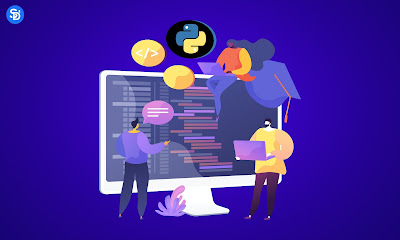Why Python Is a Top Choice for Blockchain Development
In the world of blockchain technology, Python has emerged as a dominant force, enabling developers to build secure and efficient blockchain solutions. Python's versatility, extensive library support, and ease of use make it a preferred choice for blockchain development. If you're considering venturing into the blockchain space, partnering with a Python development company can be a strategic move to leverage the language's capabilities.
Python's Strengths in Blockchain Development
1. Readability and Simplicity:
Python's clean and readable syntax simplifies complex blockchain coding. It allows developers to focus on logic and functionality rather than wrestling with intricate language rules.
2. Extensive Libraries:
Python boasts a wealth of libraries, including cryptography and hashing libraries, which are essential for building secure blockchain applications. Libraries like PyCryptodome make it easier to implement cryptographic functions, a critical aspect of blockchain development.
3. Rapid Prototyping:
Python's quick development cycle is ideal for blockchain prototypes and proof-of-concept projects. This agility enables developers to test and iterate their blockchain ideas efficiently.
4. Community Support:
Python has a vast and active developer community. This means you can find open-source blockchain libraries, tools, and frameworks, reducing development time and effort.
5. Smart Contract Development:
Python's flexibility extends to the development of smart contracts on platforms like Ethereum. Tools like Solidity and Vyper enable you to write Ethereum smart contracts using Python-like syntax.
6. Scalability:
Python's multiprocessing and multithreading capabilities make it suitable for creating scalable blockchain applications that can handle increased workloads.
7. Integration:
Python's ability to easily integrate with other languages and systems makes it a versatile choice for blockchain projects that require interaction with existing infrastructure.
8. Robust Testing Frameworks:
Python offers excellent testing frameworks, allowing developers to write unit tests and ensure the reliability and security of their blockchain applications.
9. Education and Resources:
Python's popularity in educational settings has led to an abundance of learning resources and tutorials for blockchain development, making it accessible to a broad range of developers.
Conclusion
Python's prominence in blockchain development is well-deserved due to its strengths in readability, libraries, rapid prototyping, community support, and more. If you're looking to harness the power of Python for blockchain development, consider partnering with a Python web development company specializing in blockchain solutions. Together, you can navigate the complexities of blockchain technology and create innovative, secure, and efficient blockchain applications that drive success in your industry.




Comments
Post a Comment